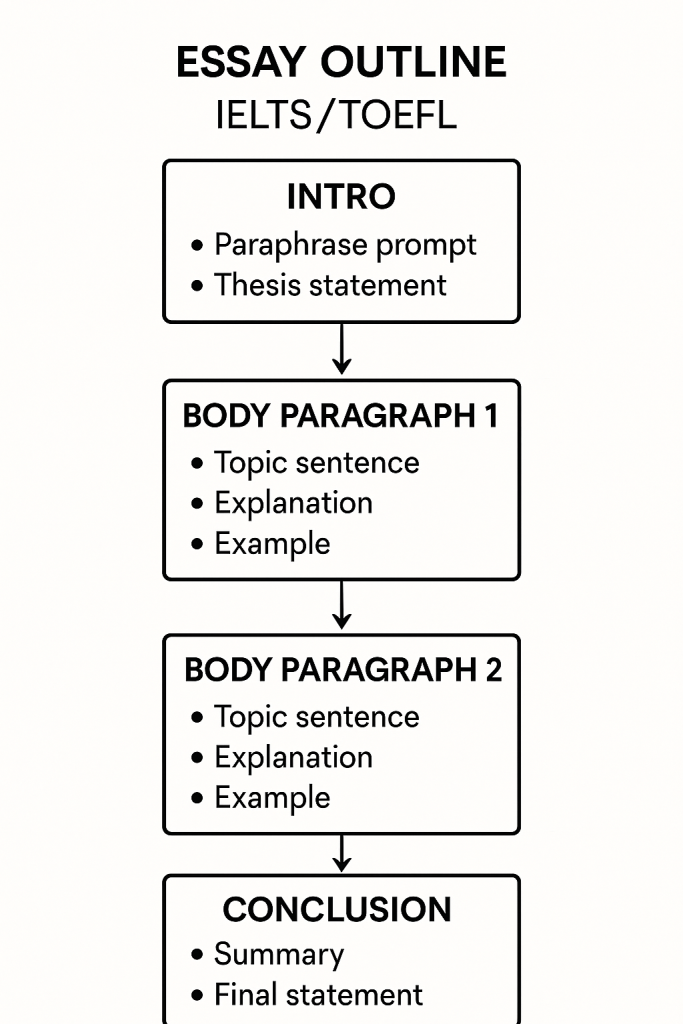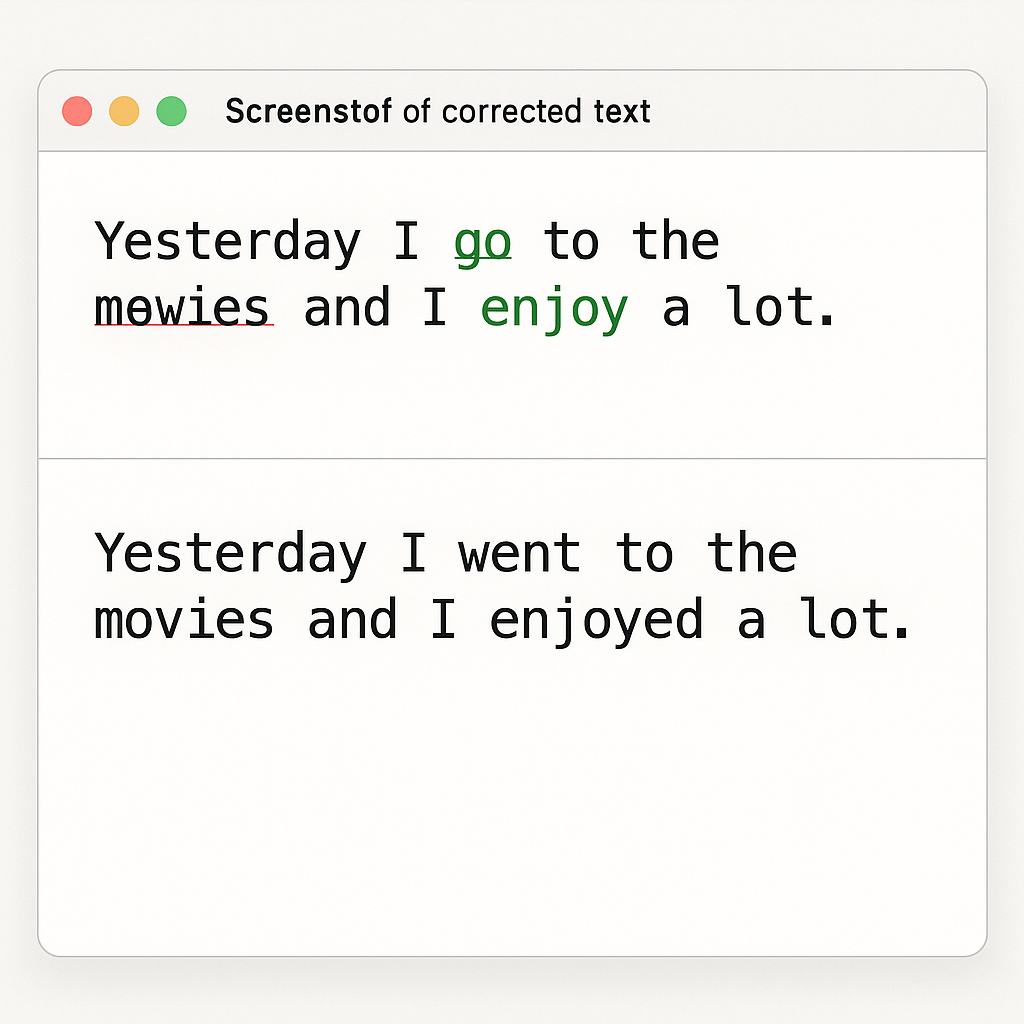Introduction
You’re staring at a blank screen. Time’s ticking. Your brain’s somewhere between panic and that song you hate. Welcome to the writing section of the IELTS and TOEFL exams. It’s where grammar goes to die and ideas collapse under pressure.

For test-takers with dreams of studying abroad or finally flexing those dusty English skills, writing isn’t just important—it’s survival. It’s also where students most frequently self-destruct. Not because they’re dumb (I mean, some are, sure), but because they don’t know what examiners want.
This isn’t a motivational poster. This is your crash course in IELTS and TOEFL writing strategies that won’t make you cry. Plus, we’ll unpack common blunders like bad grammar, weak arguments, and the classic “I wrote 300 words of nonsense” problem.
📚 How to Structure an Essay That Doesn’t Make Examiners Cry
Let’s get basic. Both exams want a clear, logical, well-supported essay. No, you’re not writing a novel. You’re building a Lego tower—brick by glorious brick.
IELTS Essay (Task 2):
- Introduction: Paraphrase the question, drop a thesis like it’s hot.
- Body Paragraphs (2–3): Each paragraph = one idea. With evidence. Don’t freestyle.
- Conclusion: Short. Punchy. No new ideas. Just a mic drop summary.
TOEFL Essays:
- Independent Task: Classic intro-body-conclusion.
- Integrated Task: Read, listen, panic briefly, then summarize both without sounding like you copy-pasted the transcript.

Structure Tips:
- Use a skeleton: Intro → Point → Example → Explain → Wrap it up.
- Don’t write like you talk (unless you talk like an academic robot).
- Use linking words like a boss: However, Therefore, In contrast. Yes, they’re boring. They also get you points.
Helpful reads:
Transitional Conjunctive Words for Cohesion
The Art of Paraphrasing
For a full breakdown of IELTS criteria, visit the official IELTS website. To dive deeper into TOEFL guidelines, check out the official TOEFL site.
🔧 Real Strategies for Students Who Want a Fighting Chance
1. The Clock Is Not Your Friend
You get 40 minutes. That’s less than one episode of The Office.
Use it wisely:
- 3 min: Plan like a genius.
- 30 min: Write like your visa depends on it.
- 7 min: Edit the nonsense you just wrote.
2. Outline Before You Ramble
Random thoughts don’t impress anyone, especially not your examiner.
- Write down 2 clear ideas + 1 example each.
- Decide your opinion and stick to it like a clingy ex.
3. Flex That Vocabulary
Saying “bad” five times won’t score points. Try:
- detrimental, ineffective, counterproductive
Mix sentence types. Start with “If,” throw in a “Although,” show off like a grammar nerd.
Want vocabulary support?
Enhance Your Vocabulary with Opposite Words
4. Coherence Is Everything
You could write in gold ink—if your essay jumps around like a squirrel on caffeine, it’s still trash.
- Transition phrases aren’t optional.
- Keep your ideas in a straight line, not a spider web.
❌ Common Mistakes (and How to Not Be That Student)

1. Writing Off-Topic
Question: Should governments fund the arts?
Your essay: “Music makes people happy.”
No. No it doesn’t. Not like that.
Fix: Circle the keywords. Repeat them in your essay like a parrot with a degree.
2. The Invisible Thesis
Bad: “There are many opinions.”
Worse: “This essay will discuss.”
Better: “Government investment in the arts enhances national pride and boosts tourism.”
3. Grammar Crimes
- “He go to school.” (No he doesn’t. He went. Or he goes.)
- “Many peoples is happy.” (Stop.)
Fix: Level up your grammar:
Advanced Grammar Tips for Non-Native Speakers
Academic Writing Grammar Style Guide
4. Vague, Boring Examples
Bad: “Some people like music.”
Better: “For example, South Korea’s investment in K-pop has increased cultural exports.”
5. Paragraph Chaos
Idea A. Jump to Idea F. Back to B.
Fix: Stick to the format. Each paragraph is a mini-essay. Treat it like a VIP.
🧠 Conclusion: Your Game Plan
Let’s sum it up:
- Follow a structure like your essay depends on it—because it does
- Plan before you write
- Use vocabulary like you swallowed a thesaurus
- Avoid mistakes that scream, “I didn’t prepare!”
You want a high TOEFL writing score or top marks on IELTS writing tips? Start with this post. Practice like it’s a sport. And for the love of grammar—edit.
